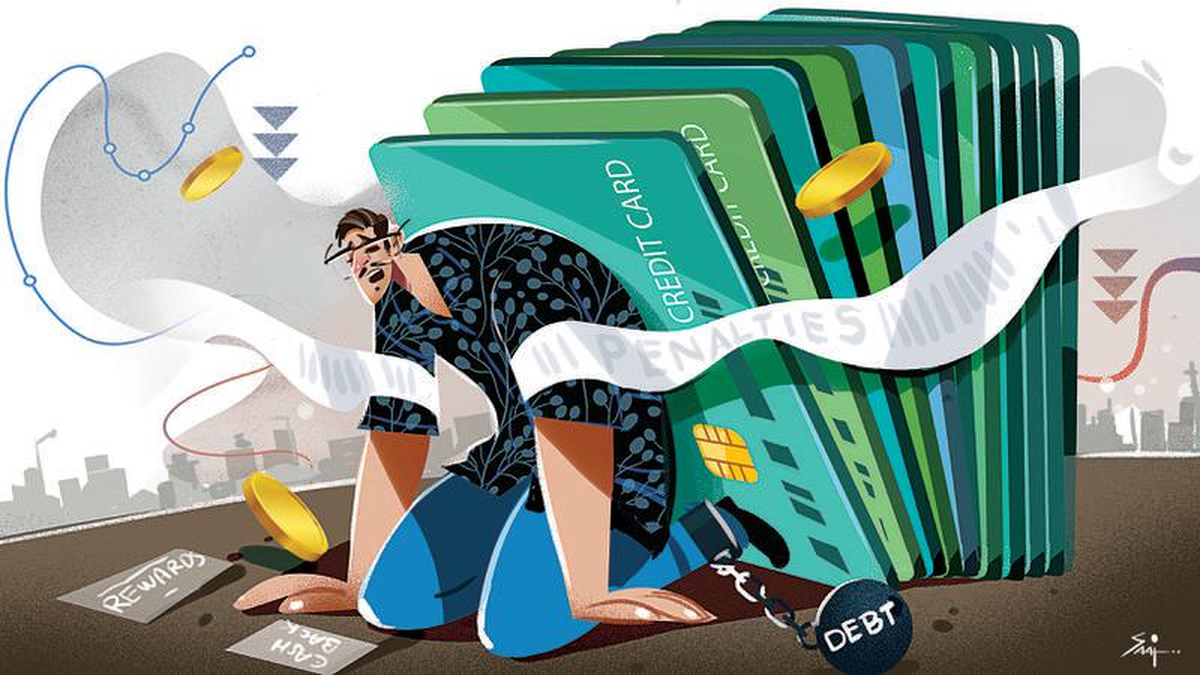Credit cards help you make high-ticket purchases and, when used responsibly, contribute to building a strong credit profile. However, there are some mistakes which can adversely impact your financial life if not avoided. Withdrawing cash A portion of your credit limit is available as a Cash Limit, which can be used to withdraw cash from an ATM using your credit card.
However, most credit cards impose finance charges on the withdrawn amount from the first day, along with a one-time cash advance fee applicable to every ATM cash withdrawal. Additionally, purchases made after a cash withdrawal typically do not qualify for an interest-free period until the entire outstanding balance is repaid. This can lead to significant charges that may become difficult to pay off, increasing the risk of falling into a debt trap.

Therefore, it is strongly advised to avoid withdrawing cash using a credit card unless it is a last resort in case of an emergency. Even if you have to opt for this, you should make sure to repay the amount as soon as possible to minimise additional charges. Overspending on card Credit cards provide users with a higher purchasing power.
Access to more funds, combined with the convenience of an interest-free period, can sometimes lead to impulse purchases. Consistently spending beyond your means can accumulate a high credit card balance, which can potentially spiral into unmanageable debt. This raises the risk of late payments and additional costs in the form of late payment penalties and finance charges on outstanding as well as new transactions.
To avoid this, the best approach is to make a monthly budget and stick to it by only spending as much as you can afford to repay at the end of the statement cycle. Minimum due amount If you cannot clear the total dues on a card by the due date, you can have the option to pay a minimum amount due. While this helps avoid late payment fees and negative impact on your credit score, it comes with a cost.
When you pay only the minimum due, as remaining balance, as well as any new transaction made with the card, starts attracting finance charges. Credit card finance charges can be as high as 45% p.a.
or even more in certain cases, significantly increasing your debt burden. Making minimum payments for several consecutive months, along with putting new purchases on the card, can quickly lead to a debt spiral. Hence, it is advised to pay the total amount due on your credit card every month.
If you cannot afford to clear the dues in full, you should consider EMI conversion or balance transfer on EMI to manage your debt more effectively. Reward points/benefits Most credit cards come with their unique reward programmes, cashback offers, and other lifestyle-related benefits. However, some users fail to optimise the benefits largely due to a lack of awareness around card benefits.
Choosing the right card for specific purchases is crucial. For example, if you are booking movie tickets, a card that offers movie discounts would be more beneficial than a general rewards card. To maximise savings, you must select a card that complements your lifestyle, actively review the card benefits along with their validity, and understand how to make the most of it.
While earning rewards is important, maximising their redemption value is crucial. For example, with an HDFC Regalia Gold credit card, redeeming points for statement credit gives you a value of ₹0.20 per point, while redeeming for items in the Gold catalogue or travel bookings can yield a value-back of ₹0.
65 and ₹0.50 a point, respectively. So, if you have 50,000 points, you would get ₹10,000 as a statement credit.
However, if you choose to redeem against an item from their Gold Catalogue, you could get products worth up to ₹32,500– a significantly higher value. Exhausting limit Credit utilisation ratio refers to the ratio of the credit limit you are using to the total limit available to you. If you regularly overspend and maximise your credit cards, this would not only make it difficult to repay your dues in full but also signal the lenders that you might be on thin ice financially and present you as credit hungry.
This, in turn, can lower your credit score and negatively impact your chances of approval for other credit products. To maintain a healthy credit score, keep credit utilisation in check by spending within means and spreading your big-ticket purchases over time, whenever possible. Multiple cards While it may be tempting to apply for multiple credit cards to increase your spending capacity and enjoy diverse benefits, doing so can negatively impact your credit score.
Every time you apply for a credit card, a hard inquiry is initiated on your credit report, which can lead to a temporary drop in score. Moreover, managing multiple credit cards can also pose another challenge, as it may be difficult to minimise annual fee and fully utilise each card’s benefits. To avoid appearing credit-hungry, it is advisable to carefully assess your need for a new card and maintain at least a six-month gap between applications.
A credit card, when used responsibly, can be valuable in building your credit profile, managing cash flow, and earning rewards. However, common mistakes such as overspending, missing payments, mismanaging rewards, etc. can turn it into a financial burden.
Hence, by staying informed and with disciplined usage, you can make the most of your credit card. (The writer is chief business officer, credit cards, Paisabazaar) Published - May 05, 2025 05:15 am IST Copy link Email Facebook Twitter Telegram LinkedIn WhatsApp Reddit credit cards / Money & Investing.
Business

Smart credit card usage: 6 costly mistakes to avoid

A credit card can be valuable in building a credit profile, managing cash flow, earning rewards; however, common mistakes such as overspending, missing payments, mismanaging rewards, etc. can turn it into a financial burden.















